“Here’s the thing. Your career won’t take care of you. .. It’s never going to leave its wife. It will never marry you… your career is a bad boyfriend, it is healthy to remember you can always leave and go sleep with somebody else.”
Amy Poehler, Yes Please!
The Lives I’ve Lived
At twenty-two years old I received the University of Saskatchewan Department of Biochemistry Convocation Award. I graduated top of my class, astutely aware of the intricacies of DNA’s base pairs and the central dogma of molecular biology.
“Ninety-eight percent, Cheryl! That’s incredible.” My professor remarked after grading my midterm exam. He had accepted my request to supervise my honors research project at the cancer center and I could tell he had high hopes. “How’d you do it?”
I shrugged shyly, the material was fascinating. I couldn’t get enough. That’s how.
Yet, at the end of my project, I knew grad studies was not for me. The actual day-in day-out tedium of being holed up in the lab with beakers and pipettes had grown boring. Even so, this field of study continues to have a soft spot in my heart. It is one of the “lives” that I have lived.
Rosalind Franklin
Therefore, just the other week when my husband, Ryan, slung around the phrase Elementary my dear Watson, it got me thinking about Watson. Not from Sherlock Holmes, but from Watson and Crick- the scientists awarded with discovering DNA’s structure. These two blokes pretty much stole fellow scientist Rosalind Franklin’s work from under her to achieve this success. A story of science, sexism and scandal. As I growled at the thought of Watson, I wondered if anyone had written about Rosalind recently.
To my delight I found that last year author Marie Benedict published a historical novel, Her Hidden Genius, based on Rosalind Franklin’s life. I checked the book out from the library and discovered a Rosalind who pushed the limits despite the barriers her gender placed on her, defied her father’s wishes by choosing science not philanthropy, and worked meticulously and around the clock in her research lab. In her scant spare time she climbed mountains and challenged others alongside her, until her very last days.
As I sat on my bed to escape the noise of my family’s boisterous playing and fighting in the living room, I reached the final pages of Benedict’s superbly researched book. Tears threatened to spill. I knew how this story ended. Yet, “watching” 37 year old Rosalind’s death from ovarian cancer was too much. Too much like my own story.
And then I read these words on the page that left me completely undone: “science was letting me down”.
“Oh Rosalind,” her name escaped my lips and I felt a raw and emotional kinship to this incredible woman who died over twenty years before I was even born. I looked from the pages as my throat squeezed, then grabbed my pen and scrawled into my journal, I love you Rosalind.
Over and over into my memoir I’ve written about how science let me down. It was a religion of sorts with an air of infallibility. Therefore, being a pharmacist gave me a sense of autonomy, self-sufficiency, agency, and validation. Yet, Glioblastoma came and plucked that from me leaving me with a nearly empty medicine chest and an imploded Evidence Based Medicine paradigm. Rosalind I know you understand. My revered framework for life was gone.
What now?
What now, that brain cancer’s upheaved my life? I’ve asked myself this question countless times over the past six years, usually with a pained longing in my gut. Should I try to return to my profession? I literally dream about being in the pharmacy dispensary regularly (where of course the pharmacy is always happily overstaffed). Each morning after such dreams I make a studious list of pros and cons of trying to return to my old life. Without fail, health always wins out and I know I am living the best life for me and for my family. Yet, I find myself lusting for these old lives of mine: scientist, pharmacist. They feel glamorous and sexy, stable and safe (1). Oh how I long for the greener grass of yesterday. And increasingly so in the past six months.
My Year of Letting Go
You see, in January I deemed this my year of “letting go”. This isn’t just arbitrary. After June 30 if I have not renewed my pharmacist license, I will have to rewrite my exams to return to practice. Am I planning to return? The simple answer to that complicated question is no. In my core I know that returning would be suicide. I can’t handle stress like I used to; glioblastoma brought a big cloud of chaos that pulverized my nervous system. Taking care of myself requires a quieter kind of life. That is why I write now. (2)
However, writing as a vocation has become increasingly vulnerable. “Say what others aren’t brave enough to say”, and “write what you feel” are both gutsy pieces of writing advice that I adhere to. Yikes! Being a writer is not “safe” like science. It’s the most vulnerable job I have ever done. And I find myself lately wanting to run away from it. I’m scared of the intimacy of it all. Peeling back my armor and showing you my soft core, oh this is daring. Especially in light of my (seemingly) waning mortality; feelings of invincibility thwart my vulnerability. (What strange creatures we humans are!)
I long to guard my “soft front”(3). Yet at the same time this softness of mine aches to be shared. On my desk I’ve posted what I wrote in 2018: “What good is a closed book on a shelf collecting dust? (No use at all!) And so I choose to live my life as an open book.” If I smother my soft front, I’ll lose my wild heart. The nugget of me that is my true essence distilled. It is a risk I cannot tolerate. I have been learning over the past years how to be kind to myself. How to love myself well. How to uncover and polish that brilliant nugget of me. Brene Brown in her book The Atlas of the Heart says, “Heartbreak is unavoidable unless we choose not to love at all. A lot of people do just that.”
I raise my right hand and pledge not to be one of these people. In doing so, I pledge to be prone to heartbreak.
For me, this means letting go.
Letting go of the pharmacist, sciency me.
Burning my Boat
This all means letting my boat burn.
I learned the burn your boat concept from Jim Collins’ book Good to Great. As the story goes, a General destroyed his army’s boats upon landing. This meant there was no turning back and moreover there were no thoughts of turning back. The boats were burned, there was only one thing to do: move forward.
Of course this is not a fun place to be. It’s unnerving at best. Always risky. And one hundred percent certain to be chock full of uncertainty. It’s all brand new. I don’t know about you but I like the comfort of knowing, of having the map and pre-planned exit ramps for when the heavy traffic makes my heart beat into my eyeballs. Burning your boat is not like that. It is more like stepping into a gnarly wilderness full of unknown dangers, the scariest kind.
But as Joseph Campbell wrote (quoted in Brene Brown’s Braving the Wilderness),
“If you can see your path laid out in front of you step by step, you know it’s not your path. Your own path you make with every step you take. That’s why it’s your path.”
The Wilderness
Life since I completed my cancer treatment has very much felt like a wilderness. A no man’s land between healthy and sick. It has been arduous to find a space where I belong. I’m no longer my old self, yet I’m struggling to figure out who I am now and if I even like her. (And what would Rosalind think of her?)
This wilderness could easily become a prison of sorts, if I let it. I could ruminate about the unfairness, about my lost past, about my uncertain future. But I know where that would leave me: vice-gripped with fear. As holocaust survivor Edith Eger describes in her book, The Choice finding freedom is not just about being free from imminent death as she faced in concentration camps and as I thought I was facing when I was first diagnosed with brain cancer. “We also must choose to be free to-” Eger says, “free to create, to make a life, to choose. And until we find our freedom to, we’re just spinning around in the same endless darkness.”
Maya Angelou put it this way, “You are only free when you realize you belong no place – you belong every place – no place at all. The price is high. The reward is great.” (4) This quote, Brene Brown says, is about belonging to yourself first. Moreover, it’s about letting go of your desire for security, affection, and control – because you already have these, from the Divine, the Universe, your Life Force (5).
The price is high when you let go, it’s difficult to say goodbye to what was. And its scary AF. But I trust that the reward indeed will be great. Because letting go is not about less. No, it’s about making space for more. More love, more life, more beauty, more warmth, more intimacy.
This is surrender. It’s waving the white flag. Not giving up. Oh no! It’s about claiming agency and working with, rather than against, the waves of the Universe. It’s about releasing control that I never really had in the first place. Sarah Blondin puts it this way, “we are not in control…[the more we] trust the journey, the more fluid and joyful life becomes. …Instead of feeling fear of all that may come…from the unknown, feel intrigued, delighted even that something new is being born.” (6) I trust that surrender is where the magic happens. For health and wholeness, love and life – rich life!
The Hot Air Balloon
For a few years now I’ve viewed myself as if in a hot air balloon anchored to the ground with four tethers. With all the personal introspection, counselling and reading I’ve done, I’ve managed to imagine myself severing three of those tethers. The fourth one however is difficult to cut. It’s the tether that wants to keep me stationary. What is that last tether? It’s finality and watching my boat burn. It’s saying goodbye one last time with prickly tears slipping from my eyes, dripping onto my squeezing chest. And it’s all wound up in fear, of course.
Yet, “Fear” Blondin explains, “is useless in these times. Trust, however, is paramount…it is in our favor.”
So I wipe my tears and I blow my nose. I mourn my heartbreaking losses and celebrate my ever-present wins and belt out a broken (and very off key) Hallelujah. Promising as Blondin beckons us, to “Get out of [my] own way.”
Deep within I know, if I let go, if I surrender, if I cut that fourth tether, I will soar. Like Angelou, I will belong everywhere and nowhere. And like Eger, I will be free to.
And Rosalind will be right there with me, part of this: my becoming.
Sending love as always,
xo
Cheryl
PS. Thanks for sticking with me, this got long! I first sat down to write this post and realized that I had enough content for a book. The concept of surrender is indeed a big one that I have not done justice to in this blogpost, but perhaps one day, I will have the good fortune of having time and space to write a book about this powerful topic.
Notes:
- “They feel glamorous and sexy” . I just have to note that I know I’m odd – (my counsellor even said so in the kindest of ways) But when I was 24 years old, an incredibly likeable Principle Researcher I worked for described her science as sexy, that adjective stuck.
- “That is why I write now.”. This is an extremely simplistic way of describing my scenario. Nothing about becoming a writer was simple. Yes, I’ve always wanted to be a writer. Perhaps it would have always suited me well. But life thrust me onto this path, mostly against my will. I am learning however, that it is best to surrender to where life’s paths lead. All goes better that way.
- “Soft front”. In her book Braving the Wilderness Brene Brown describes that a soft front is synonymous with vulnerability: “the birthplace of love, joy, trust, intimacy, courage – everything that brings meaning to our life”. Furthermore, Brown describes that to have a soft front you must have a strong back strengthened by things like boundaries, integrity, and accountability.
- Maya Angelou quoted in Braving the Wilderness by Brene Brown.
- “letting go of your desire for security, affection, and control”. This is a concept from The Contemplative Life Program 40 day practice from Contemplative Outreach (www.contemplativeoutreach.org)
- YouTube. Sarah Blondin LiveAwake, Learning to Surrender. LIVE AWAKE- LEARNING TO SURRENDER
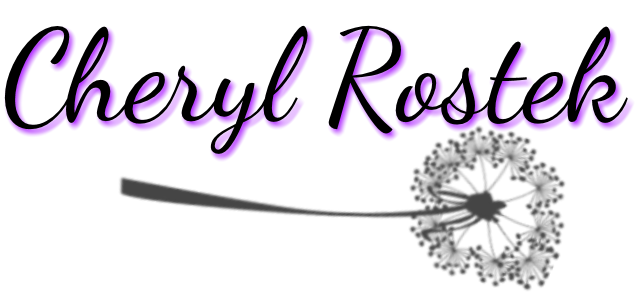


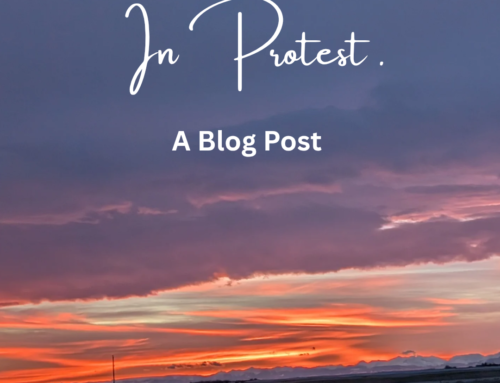
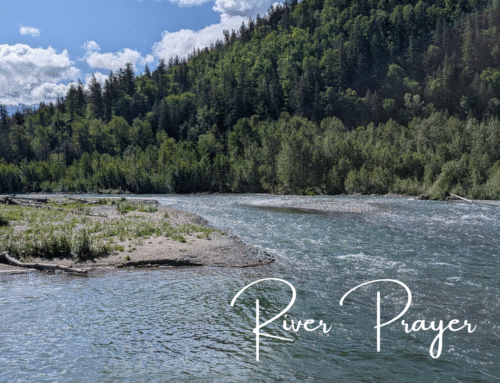

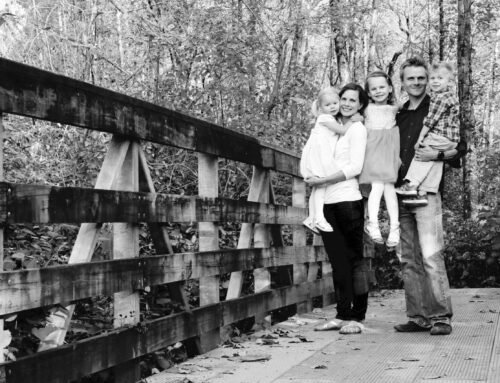
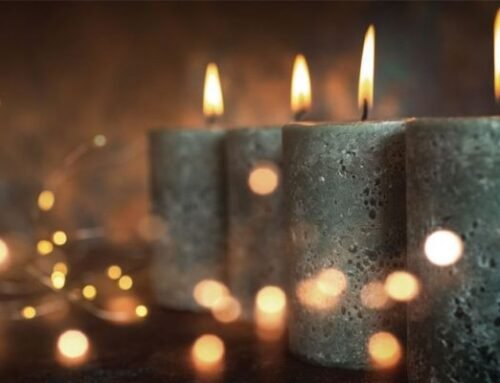
Of course it’s difficult to let your license lapse. Like it or not, we are interictally tied to what we do for a living. It’s how people describe us. You know, Cheryl, the pharmacist? It nails it down pretty quickly. Even though they are long gone, Angie will always be Angie from pets. Or Arlene from infants. But, we can’t go back. What we (you and I) worked at is no longer there. Even while I was still working, it was no longer there. I kept working, even though my body was breaking and my physio was telling me to get out because I thought, if I could just do it, I could make it like when Deb and I did it. But I couldn’t, those moments are no longer there. I had to let it go and take care of me. And so do you. Like they say, you can’t go home again. Enjoy the memory of what was and carry on with what’s new. I’m looking forward to your memoir when it’s ready.
Oh Sandra your words are spot on from a fellow writer, Walmart ex-pat, and wholehearted life-experiencer. Thank you so much. xo
With great gratitude for having met you, thank you for sharing your journey. I love you, Cheryl!
Oh Bernadine, you are one more reason to keep on keeping on at this arduous task of writing. I love you too! xo.
Ugh! My heart. And your heart. Such vulnerable and authentic expression about this. Thank you for all of these words. Never apologize for the length of your work. Those that make it to the end will know it’s worth it. ❤️
Aww thanks Holly. You’re my hero for leaving an unhealthy lifestyle *before* your body stopped you. And yeah you’re right no apologizing! xo